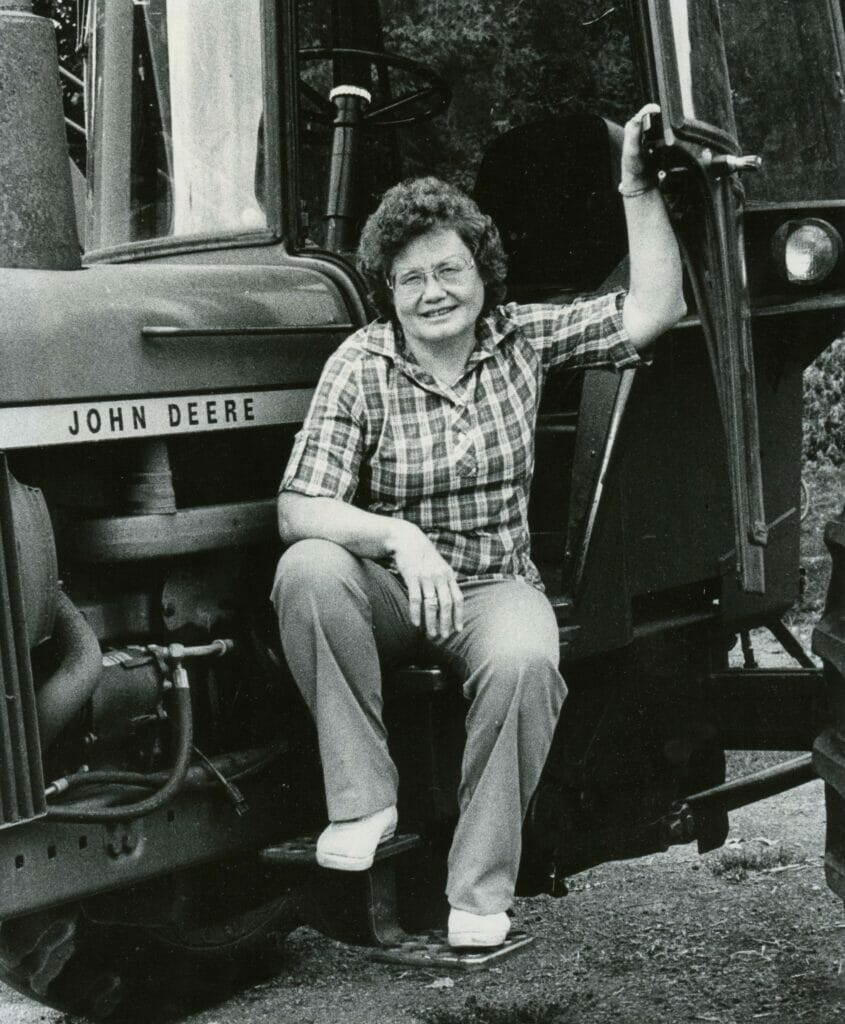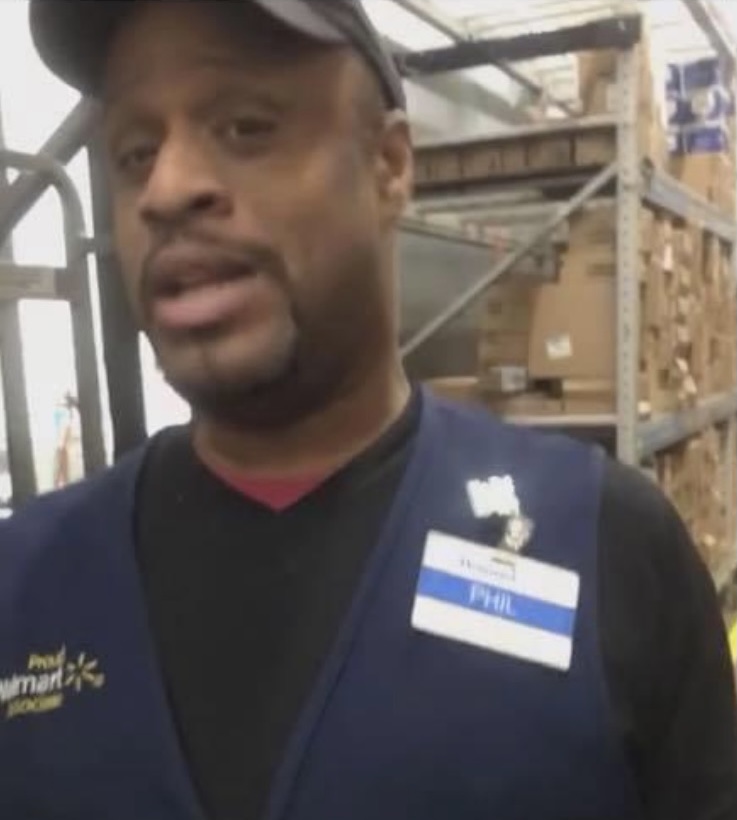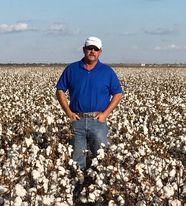Remembering the Food Workers We’ve Lost to COVID-19 Part 4
The fourth part in a series honoring the food and agriculture workers who lost their lives to the virus.
Remembering the Food Workers We’ve Lost to COVID-19 Part 4
The fourth part in a series honoring the food and agriculture workers who lost their lives to the virus.

The cost of COVID-19. by izzzy71/Shutterstock
The COVID-19 pandemic has taken an incalculable toll on the food industry workers of America, from restaurant servers and meat plant workers to the farmworkers who toil in fields. According to research from the University of California, San Francisco, food industry workers’ risk of dying went up by 40 percent from March to October 2020. For Latinx workers, deaths increased by 60 percent in the sector.
In this six-part series, we’re honoring the lives of those we have lost to COVID-19. This week, we have tributes to a former Minnesota Deputy Commissioner of Agriculture, a Walmart meat department employee and a third-generation cotton farmer.

When the economic crisis hit farms in the 1980s, Anne Kanten couldn’t sit idly by as she watched friends and neighbors lose their land and their livelihood.
Kanten, whose parents immigrated to the US from Norway in the 1920s, lived on a small farm in Iowa for a time, but that’s not what sparked her passion for the farm way of life. That happened when she met Chuck Kanten—a young farmer—while she was pursuing an education degree at Minnesota’s St. Olaf College. She fell in love both with him and his connection to the land, and the two went on to farm sugar beets, wheat and barley on a plot of land in Milan, Minnesota—the third generation of Kanten farmers to do so.
After the onset of the crisis, the couple started advocating to keep families on their farmland who were facing bankruptcy. Kanten became involved in the American Agriculture Movement, an organization that called on the federal government to impose higher prices on a number of crops.
In the 1980s, Kanten was appointed as Minnesota’s Deputy Commissioner of Agriculture and helped shape agricultural policy in the state. “She wore the radical label proudly and worked her entire life to make the lives of families on the land better,” says her daughter, Becky McCoy.
Relatives say she had a passionate and determined nature, and she poured every bit of herself into her work, her faith and her family. Kanten taught her three children the value of hard work, seeing the world and spending quality time together.
“We worked hard, and we played hard, too,” says McCoy.
After contracting COVID-19, Kanten died on December 7, 2020. She was 93. She is survived by her children Kent, Erik and Becky, nine grandchildren,10 great-grandchildren and brother Gerhard Knutson.
McCoy says her mother’s love of farming was rooted in its familial facet. “The land and how important that is to families, passing it generation to generation, that family farm aspect was really important to her,” she says. Now her son Kent and his family farm the land Kanten worked with her husband, carrying on her legacy.

Phillip Thomas was generally a quiet man, unless you got him talking about sports.
“He could talk for hours with my husband about sports,” says his sister Angela McMiller. “I would sit there, try to hang, then to go do something else, come back and they were still talking about sports. He was very, very knowledgeable about it.” As a life-long Chicago resident, the Bears were Thomas’s NFL team.
Thomas was a loyal employee of Walmart, where he worked for nine years, most recently in the meat department. In March 2020, early in the pandemic, Thomas contracted COVID-19. After a few days in quarantine, Thomas felt so ill he called himself an ambulance to go to the hospital. The next day, March 29, he died. He was 48. He is survived by siblings Angela McMiller, Yolanda Jones, Micheal Thomas, Kenneth Rufus and his mother, Linda Rufus.
The close-nit family is still reeling from losing Thomas so suddenly. “I miss him, especially in the summertime because we used to always have barbecues at my house and he would be there all the time,” says McMiller.
She recalls that whenever she hosted a gathering, Thomas would be there. He never came empty handed, and he always had a calm, happy demeanor, she says. Thanksgiving was especially meaningful to the family. “We laughed and joked around the table, him and myself and other family, we talked to my mom on the phone and it was just good memories,” she says, recalling their last Thanksgiving together.
After he died, his coworkers at Walmart created a T-shirt with Thomas’s face printed on the front, and they wore them at work in his honor.
As McMiller watched the pandemic grow, and the death counts dominate the news cycle, she was struck by how impersonal it was. “I just kept hearing it and hearing it, and I just thought to myself, ‘my brother’s more than a number,’” she says. “He was a really good guy. We lost a gem when we lost him.”

Friendships were always so important for Layne Adams.
The third-generation cotton farmer was born and raised in Ralls, Texas and had a strong connection to his local community. “He definitely made everyone feel like a friend whenever they met,” says his daughter Haileigh Muehlstein.
Muehlstein remembers fondly the many hours she spent with him riding around the fields in his truck. When he wasn’t tirelessly running his farm in Lubbock, Texas, he “liked to spend time with his close friends—to have a good meal and good drinks,” says Muehlstein. There is even a drink named after him at his favorite local restaurant, The Funky Door. The Layne Adams is poured with a strong mix of absinthe and whiskey. The restaurant added the drink to its menu in his honor after Adams died due to complications from COVID-19 on October 12, 2020. He was 49. Adams is survived by his wife Dawn, daughters Haileigh and Morgan and stepson Chase Epse.
After Adams’s death, more than 70 local farmers gathered together to harvest all 1,400 acres of his cotton fields. “It was people that my dad grew up with, people that are in our community, who he had connections with, and they co-ordinated all of those men to come harvest the crop,” says Muehlstein. The group finished the work that would have taken Adams weeks or even months in just 24 hours.
“It was just a really, really amazing thing that people were a part of,” Muehlstein says. “After something so tragic happening, we couldn’t have felt more love.”
In his absence, Muehlstein and her husband plan to continue farming her father’s fields. “We’re excited to keep it going, to try and make him proud.”
Follow us
This work is licensed under a Creative Commons Attribution-NoDerivatives 4.0 International License.
Want to republish a Modern Farmer story?
We are happy for Modern Farmer stories to be shared, and encourage you to republish our articles for your audience. When doing so, we ask that you follow these guidelines:
Please credit us and our writers
For the author byline, please use “Author Name, Modern Farmer.” At the top of our stories, if on the web, please include this text and link: “This story was originally published by Modern Farmer.”
Please make sure to include a link back to either our home page or the article URL.
At the bottom of the story, please include the following text:
“Modern Farmer is a nonprofit initiative dedicated to raising awareness and catalyzing action at the intersection of food, agriculture, and society. Read more at <link>Modern Farmer</link>.”
Use our widget
We’d like to be able to track our stories, so we ask that if you republish our content, you do so using our widget (located on the left hand side of the article). The HTML code has a built-in tracker that tells us the data and domain where the story was published, as well as view counts.
Check the image requirements
It’s your responsibility to confirm you're licensed to republish images in our articles. Some images, such as those from commercial providers, don't allow their images to be republished without permission or payment. Copyright terms are generally listed in the image caption and attribution. You are welcome to omit our images or substitute with your own. Charts and interactive graphics follow the same rules.
Don’t change too much. Or, ask us first.
Articles must be republished in their entirety. It’s okay to change references to time (“today” to “yesterday”) or location (“Iowa City, IA” to “here”). But please keep everything else the same.
If you feel strongly that a more material edit needs to be made, get in touch with us at [email protected]. We’re happy to discuss it with the original author, but we must have prior approval for changes before publication.
Special cases
Extracts. You may run the first few lines or paragraphs of the article and then say: “Read the full article at Modern Farmer” with a link back to the original article.
Quotes. You may quote authors provided you include a link back to the article URL.
Translations. These require writer approval. To inquire about translation of a Modern Farmer article, contact us at [email protected]
Signed consent / copyright release forms. These are not required, provided you are following these guidelines.
Print. Articles can be republished in print under these same rules, with the exception that you do not need to include the links.
Tag us
When sharing the story on social media, please tag us using the following: - Twitter (@ModFarm) - Facebook (@ModernFarmerMedia) - Instagram (@modfarm)
Use our content respectfully
Modern Farmer is a nonprofit and as such we share our content for free and in good faith in order to reach new audiences. Respectfully,
No selling ads against our stories. It’s okay to put our stories on pages with ads.
Don’t republish our material wholesale, or automatically; you need to select stories to be republished individually.
You have no rights to sell, license, syndicate, or otherwise represent yourself as the authorized owner of our material to any third parties. This means that you cannot actively publish or submit our work for syndication to third party platforms or apps like Apple News or Google News. We understand that publishers cannot fully control when certain third parties automatically summarize or crawl content from publishers’ own sites.
Keep in touch
We want to hear from you if you love Modern Farmer content, have a collaboration idea, or anything else to share. As a nonprofit outlet, we work in service of our community and are always open to comments, feedback, and ideas. Contact us at [email protected].by Shea Swenson, Modern Farmer
May 14, 2021
Modern Farmer Weekly
Solutions Hub
Innovations, ideas and inspiration. Actionable solutions for a resilient food system.
ExploreExplore other topics
Share With Us
We want to hear from Modern Farmer readers who have thoughtful commentary, actionable solutions, or helpful ideas to share.
SubmitNecessary cookies are absolutely essential for the website to function properly. This category only includes cookies that ensures basic functionalities and security features of the website. These cookies do not store any personal information.
Any cookies that may not be particularly necessary for the website to function and are used specifically to collect user personal data via analytics, ads, other embedded contents are termed as non-necessary cookies.